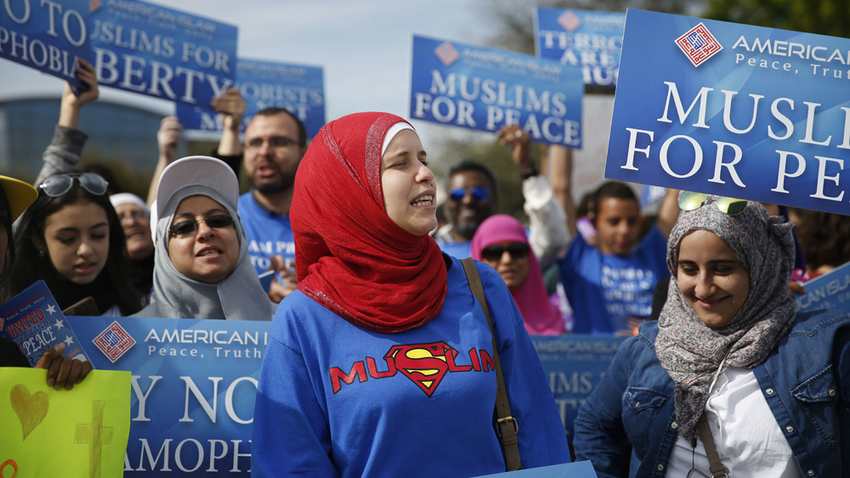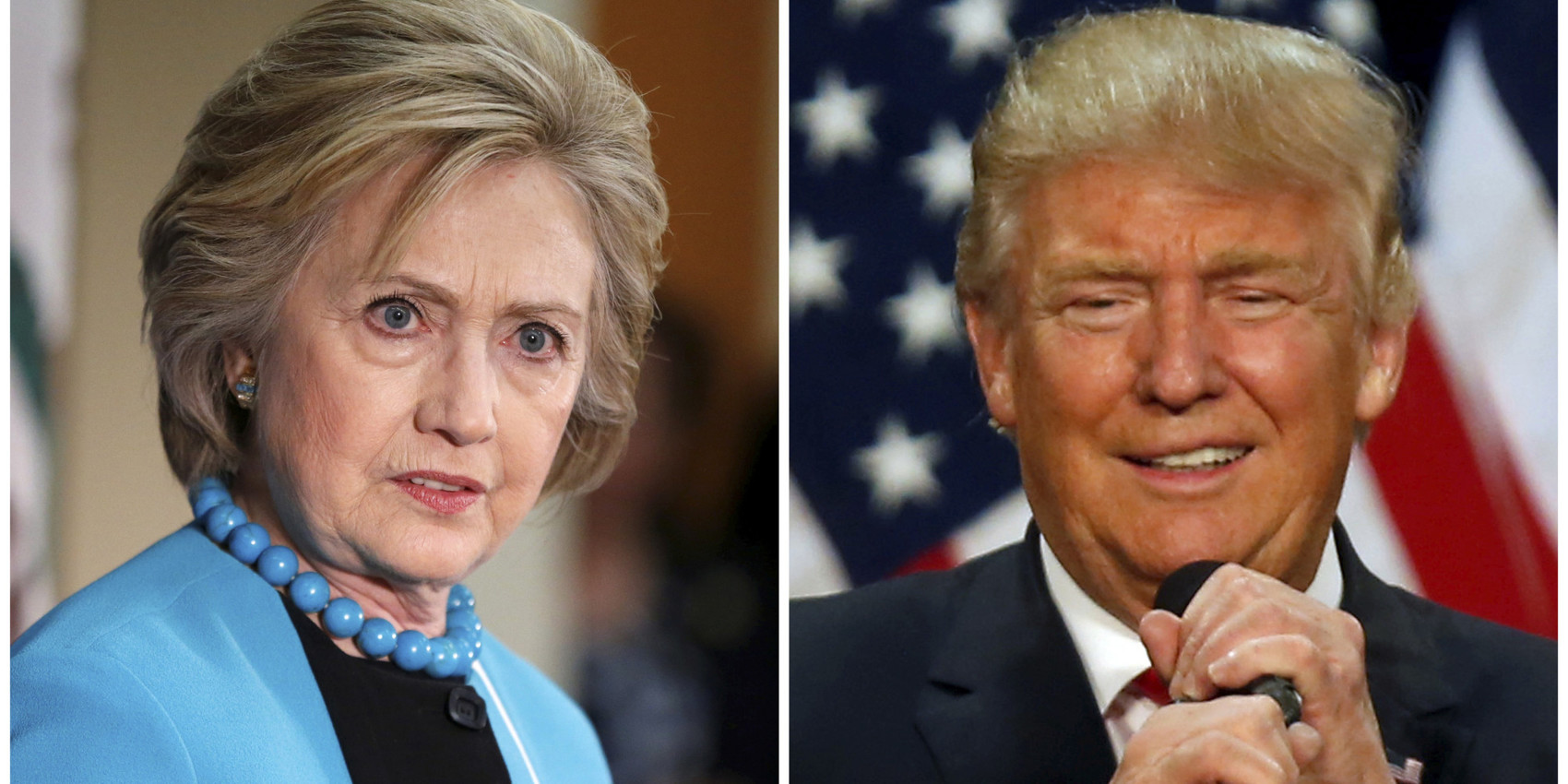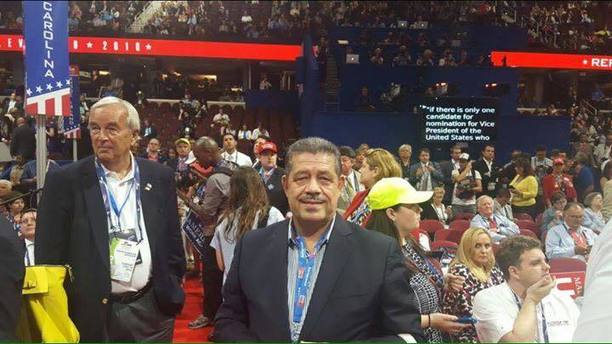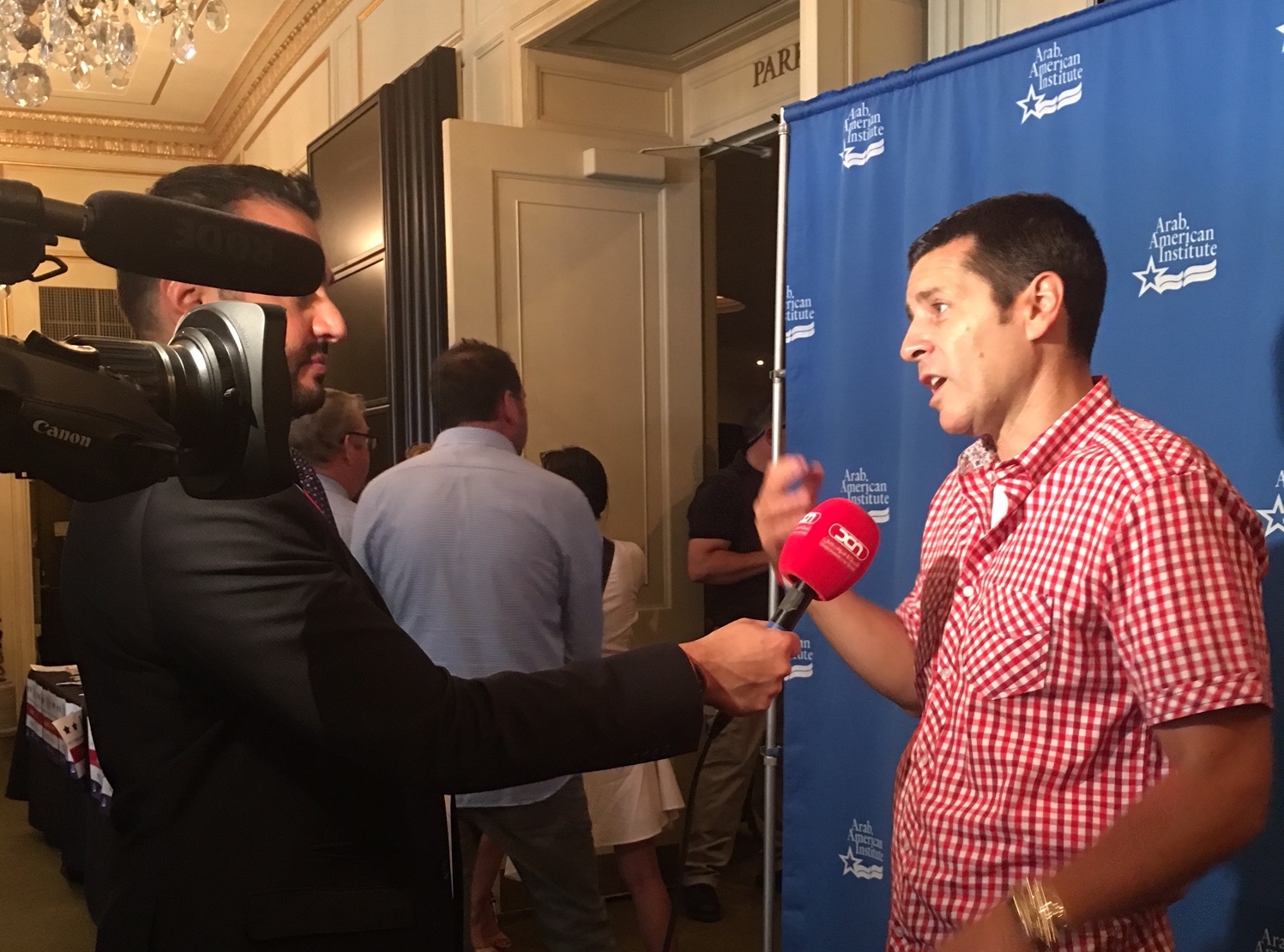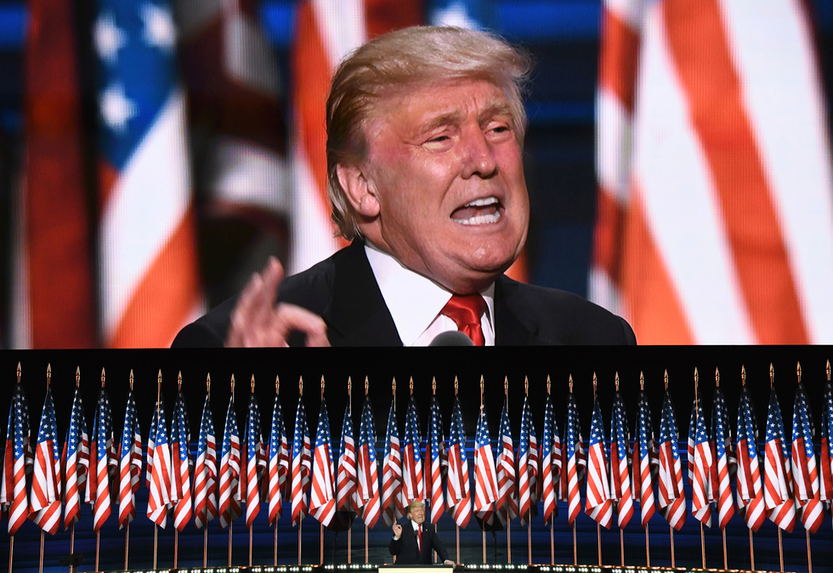
By Yasmine Ryan
Middle East Eye
This week in Cleveland, Trumpism went from being a punchline to solidifying into a genuine political ideology – one that may change the political landscape of the United States.
For many Muslim-Americans, that’s an especially frightening prospect.
On Thursday night, Julia Shearson gathered with a group of Muslim-American families to watch Donald Trump’s speech. Over creampuffs and basbousa, a Middle Eastern sweet cake, eight of them listened intently to the new Republican Party nominee’s defining discourse.
Shearson, who is also the executive director of the Cleveland Chapter of the Council for American-Islamic Relations (CAIR), said she vacillated between being mesmerised by his seductive promises and being horrified by his scapegoating.
“There was lots of coded language; he was speaking to white Americans,” Shearson said. “He speaks about minorities, not to us.”
The picture of the US that Trump painted was a dark one. America, as he described it, is under siege – by the deceptive liberal elite, by criminal immigrants, and most of all by “radical Islamists”. It’s a vague enemy, with the lines blurred between terrorism, crime and violence.
The only solution? Himself, of course.
“Beginning on January 20th, 2017, safety will be restored,” Trump promised. What that means for non-white Americans is not clearly defined.
The call for presumptive Democratic presidential nominee Hillary Clinton to be arrested came not only as a recurring chant from his crowd of supporters, but also from keynote speakers. One key Trump adviser even called for her to be “executed”.
In retaliation against Texas Senator Ted Cruz, a fellow Republican who pointedly refused to endorse the nominee on Wednesday, Trump has rehashed a conspiracy theory that his former rival’s father was somehow linked to President John F Kennedy’s assassin.
Central to his claim that America needs him is the existential threat posed by “radical Islamists,” a term that is often stretched by Trump and his supporters to imply every Muslim.
Earlier in the week, the Arab American Institute (AAI) organised a comedy side event in Cleveland to challenge the vehemently anti-Muslim and anti-Arab rhetoric. It was called “BANNED: Dangerously Funny Arab Americans at the GOP Convention,” and Republican delegates were explicitly invited. About 400 people made it to the show, though only a handful seemed to be from the RNC.
“The ones who really hate us probably won’t come,” Dean Obeidallah, one of the comedians, said in an interview with Middle East Eye.
“We’re going to stay late to study for the Newt Gingrich Sharia Test,” Obeidallah quipped during his act. He was referring to one of the latest proposals to come from the prominent Republican. Gingrich has emerged as one of Trump’s most outspoken allies.
“I was once on Fox and Friends and they said, ‘So you’re Arab and Muslim. How many terrorists are there?’ I said ‘87’.”
“After this, we’ll be recruiting for Muslims, we’ve got free turkey-bacon,” he said, before quickly adding, “I’m only joking!”
“I’m so glad I got married before Donald Trump got elected, because otherwise I would die a virgin,” said another comedian, Maysoon Zayid, referring to Trump’s proposal to ban Muslims from the US.
As Trump switches into presidential mode, Muslim-Americans are bracing themselves for the next red line to be crossed. Trump hardly invented American Islamophobia, but his political success is, to a considerable degree, linked to his ability to harness it.
Shearson says it all began in the aftermath of the 11 September 2001 attacks, claiming the Bush administration introduced a series of repressive policies that targeted the Muslim community. The War On Terror was a war in foreign lands, but it also imagined a domestic enemy.
Right-wing media outlets, especially Fox News, have propagated fear of Islam. In rural America, evangelical Christian groups have embarked on a widespread campaign against the perceived threat posed by Muslims.
The so-called “anti-Sharia” movement, embraced by the Tea Party, but also by mainstream Republicans and influential members of the military and security establishment, has allowed a conspiracy theory to be used as grounds to legislate against “foreign law” in more than 30 states. The latest “anti-Sharia” bill is due to be voted on soon in the Ohio House of Representatives. Some Jewish and Catholic groups have expressed support for Muslim communities by opposing such laws.
Like Trump, white supremacist movements have co-opted Islamophobia to increase their influence. This is particularly true in the former slave-owning southern states.
“The KKK in Alabama is using the spectre of Muslim refugees as a recruitment tool,” Shearson said.
If Trumpism is bringing latent xenophobia against Muslims and other minorities out into the glaring light, it isn’t an accident. Speaking candidly at an event on the future of the Republican Party on Thursday, Cruz’s lead adviser Jeff Roe said it makes political sense for a Republican presidential candidate to focus on winning far-right voters who might not otherwise vote, and forget about swing voters in the middle.
This goes against the emphasis on winning over the middle ground favoured by both parties in recent elections.
“It’s not the way to build the party long-term, but you’re talking this election cycle,” Roe said.
Meanwhile, the Obama administration has continued many of the War on Terror policies from the Bush era, much to the disappointment of Shearson and civil rights groups like CAIR.
Source: www.middleeasteye.net




